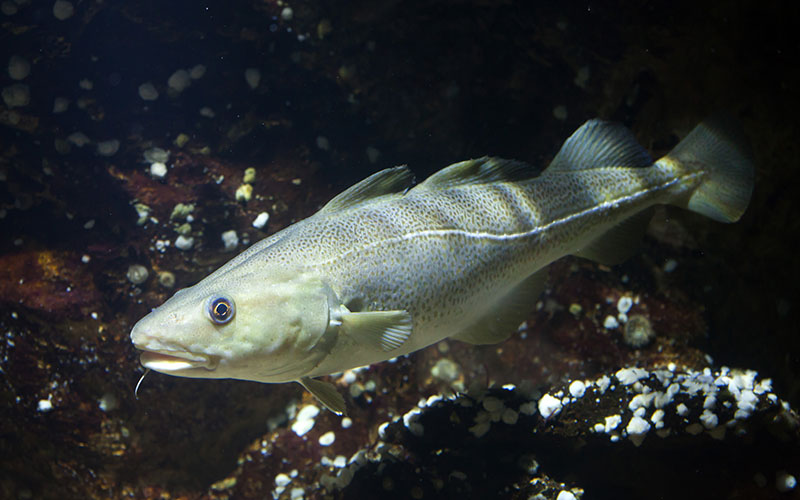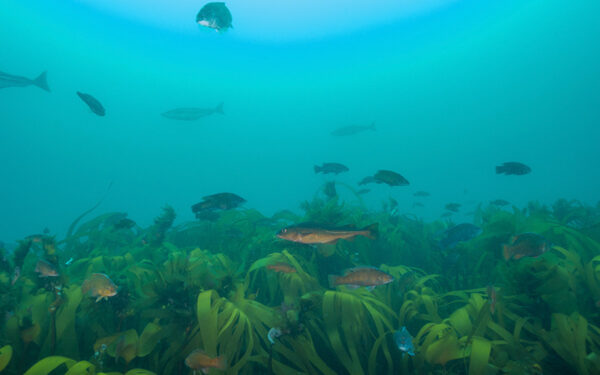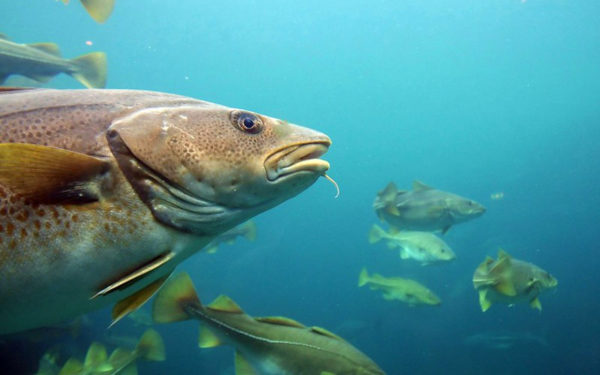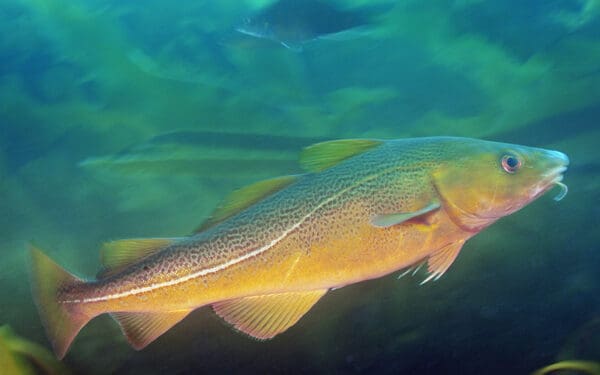
To save Atlantic cod, CLF petitioned the federal government to take five onservation and management measures. Photo: Vladimir Wrangel via Shutterstock
Atlantic cod is in crisis. It’s been overfished for decades, despite federal law requiring our fishery managers to end overfishing and rebuild to healthy populations as quickly as possible. Management actions to date have not been successful. If we don’t take forceful action now, it will be close to impossible for cod to recover in the near future.
That’s why CLF petitioned the federal government to follow the law and save Atlantic cod. Our petition calls for five new conservation and management measures. Given the years of ineffective management that led to this crisis, these measures are necessary to end overfishing immediately and finally put cod on a path to recovery.
1. Monitor all New England groundfish trips
Fishery managers set low catch limits for cod given its overfished status. These limits are meant to constrain fishing. But under the current system where the majority of trips don’t have a monitor on board, it’s actually better for a fisherman’s business to simply throw cod overboard rather than bring it to market. This way, the discarded cod doesn’t count toward the low catch limits, and the fishermen can keep their boats in the water for longer. In 2018, there were reports of up to 3,000 pounds of illegally discarded cod per trip.
Without an accurate understanding of how much cod is actually being caught, managers cannot prevent – let alone end – overfishing. Also, these illegal discards aren’t accounted for in the data used to inform stock assessments and set catch limits. This leaves scientists and managers operating from a place of incomplete data. Cod simply cannot rebound to healthy levels under these conditions.
The only way to know what is actually being caught is through 100% monitoring on every groundfish trip in New England. Whether done by a person or an onboard camera, the monitor collects data such as kept and discarded catch, fishing gear, and fishing location. The Pacific Fishery Management Council already made this transition a decade ago, and many of their overfished stocks rebuilt ahead of schedule. Scientists in New England, and even some fishermen themselves, have also acknowledged that 100% monitoring is needed for sustainable management.
2. Stop fishing for cod – both commercially and recreationally
Atlantic cod is in such a precarious place that continued fishing will hinder recovery. Scientific studies show that stocks are more likely to rebuild if there’s an immediate ramp down of fishing instead of trying to make small reductions over time. Managers have tried the small reductions method in the cod fishery for nearly two decades, and it hasn’t worked. Now, more drastic action is needed.
3. Create refuges to protect important habitat
Managers need to create refuges where cod can spawn, grow, and thrive. This means closing important cod areas to any fishing capable of catching cod and other groundfish. It’s especially important to protect young juvenile cod so they’re not caught before they can grow. Refuges must also protect the large, highly productive females. These big mother fish lay exponentially more eggs than their smaller, younger counterparts. Setting aside some of the ocean for them to safely spawn will help build the next generation of cod.
4. Require modified fishing gear to reduce cod bycatch
Cod are still likely to be caught even with a prohibition on cod fishing. This is because cod can be caught as “bycatch” when vessels are targeting other groundfish species. To minimize bycatch, and so that other fishing can continue while cod makes a comeback, managers must require specific nets and other fishing gear that avoid cod.
5. Make sure that recreational fisheries aren’t killing cod
Recreational fishing has a big impact on the cod population. In 2018 alone, recreational fishing accounted for nearly 10% of the total landings of Atlantic cod. To facilitate cod recovery, areas that are closed to commercial fishing must also be off-limits to recreational fishing. Also, by requiring specific catch-and-release practices across all of Atlantic cod’s range, cod can have a better chance of survival if accidentally caught by recreational fishermen.
We understand that it may take time to develop and implement some of these necessary measures on the water. That’s why in addition to these five actions, we called on the federal government to take emergency action in the interim. Managers should immediately close all commercial and recreational fishing for cod in the Gulf of Maine and mandate fishing gears that minimize the risk of bycatch.
We recognize that these actions will be difficult for fishing communities already feeling the pinch of cod’s impending collapse. But without these measures, cod will run out of time – and the entire cod fishery with it.



